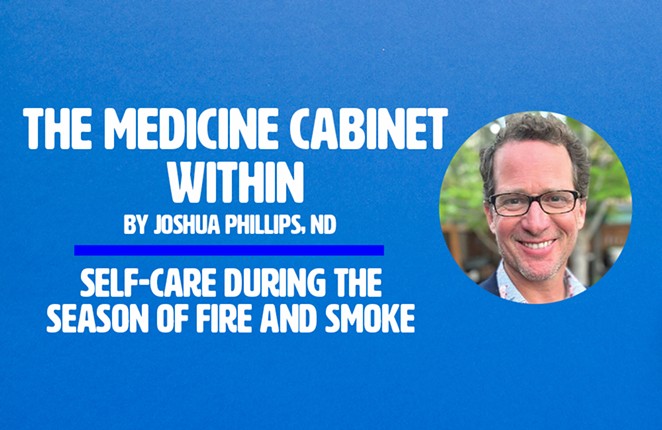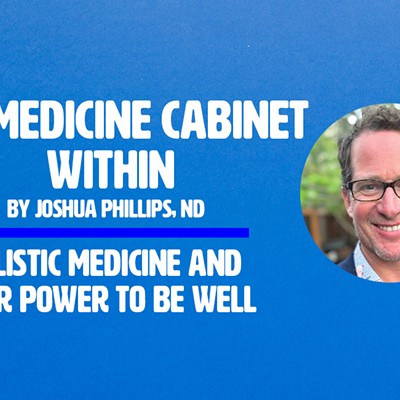This summer has brought heat to Bend and much of Oregon like never before, with forest fires and persistent smoke beginning very early in the season. It's part of a changing climate landscape that affects many things, including how we recreate and enjoy the outdoors — not to mention our health. The "air quality index" is part of daily conversations, and changing or canceling plans and events based on smoke density has become the norm.
I see greatly differing reactions and sentiments to the fire smoke — ranging from a laissez-faire attitude of acceptance to others who become outright ill and simply cannot tolerate the smoke exposure.
The bottom line though, is that those with preexisting cardiovascular or chronic respiratory conditions, or those with other serious chronic health issues, are at an increased risk. These individuals should take extra precautions, making sure their home and office is equipped with a reputable air filter (or two) with HEPA filtration, and for some wearing a well-fitting N95 mask or respirator while outdoors. The Oregon Health Authority has some useful guidelines to reference.
Simple dietary steps, including increasing antioxidant-rich foods like berries and citrus, can support the body's ability to deal with smoke exposure.
tweet this
For the rest of us, it's not uncommon to experience headaches, fatigue, irritability, irritated eyes, sinuses and throat and even coughing. Those with asthma might be particularly prone to respiratory distress from prolonged smoke exposure. Also very common is an increased sense of stress and anxiety — a sense of feeling trapped affects many people, and for this reason taking care of our minds and nervous systems is as important as taking care of our lungs.
First and foremost, drinking plenty of water and staying hydrated is crucial (see last month's wellness column article on water) as it supports and nourishes all of the body's mucous membranes including the throat and lungs. Further, water and adequate hydration is crucial for your body's ability to properly detoxify. Keep in mind the body's tremendous ability to heal itself and adapt to harsh environments, particularly when we take good care of ourselves.
Simple dietary steps, including increasing antioxidant-rich foods like berries and citrus, can support the body's ability to deal with smoke exposure. Those red and purple foods that contain the flavonoid anthocyanin, including cherries, blueberries, beets and red cabbage, are useful. "Cooling" foods are also very soothing during the heat and smoke, such as cucumber water, or watermelon and salads. Generally, an anti-inflammatory diet like the Mediterranean diet is very useful this time of year.
Along the lines of antioxidants, supplements like vitamin C and other bioflavonoids are considerations, as is the supplement NAC (N-acetylcysteine), a potent antioxidant, as well as being protective for the lungs. It's a precursor to the body's production of glutathione, important for detoxification. Check in with your holistic health care provider for ideas on which of these might be appropriate for you.
Herbal medicine also has a lot to offer in support of our lungs and nervous systems. The herb Marshmallow (Althea officinalis) is a demulcent that is very soothing to mucous membranes and the lungs. Slippery elm (Ulmus) is another herbal demulcent option, while Licorice root (Glycyrrhiza) is very helpful as is the respiratory tonic herb, Mullein (Verbascum). These can be prepared as teas or tinctures and are also available in "pre-fab" encapsulated formulas.
With the stress and anxiousness that can accompany unhealthy air, the herbs Skullcap (Scutellaria), Oat (Avena), Lavendar (Lavendula) and Passionflower (Passiflora) are some wonderful considerations. For many, getting into the acupuncturist is also a great way to support a balanced nervous system and lung health.
Despite the poor air quality, it is important for our mental health to stay active and connected with friends and family. Don't forget that the smoke will pass and that these suggestions can help support health and well-being in the meantime.
—Joshua Phillips, ND is a naturopathic physician and the director at Hawthorn Healing Arts Center in Bend, Oregon. He can be reached at [email protected] with questions or comments.


























